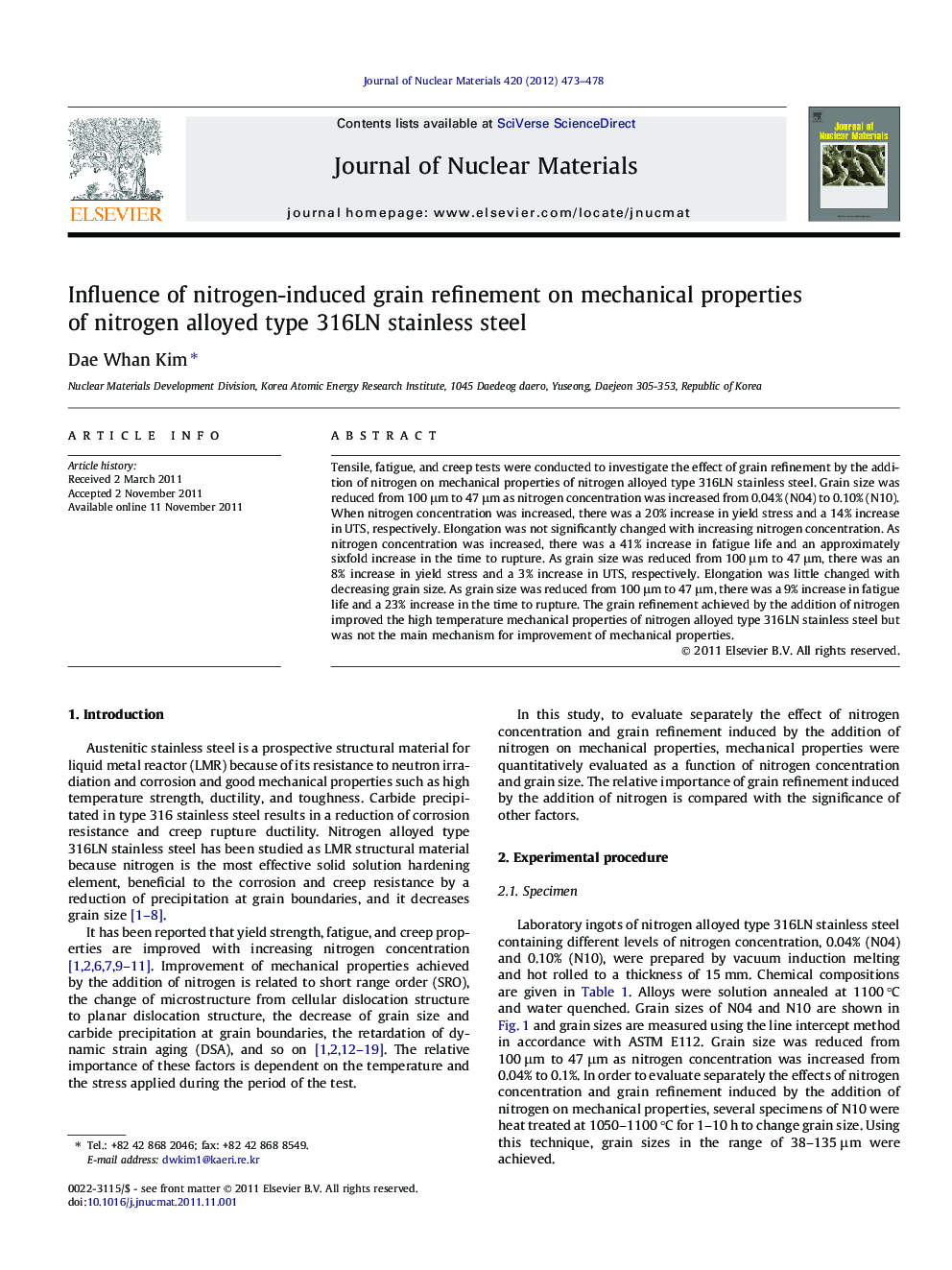| Article ID | Journal | Published Year | Pages | File Type |
|---|---|---|---|---|
| 1566494 | Journal of Nuclear Materials | 2012 | 6 Pages |
Tensile, fatigue, and creep tests were conducted to investigate the effect of grain refinement by the addition of nitrogen on mechanical properties of nitrogen alloyed type 316LN stainless steel. Grain size was reduced from 100 μm to 47 μm as nitrogen concentration was increased from 0.04% (N04) to 0.10% (N10). When nitrogen concentration was increased, there was a 20% increase in yield stress and a 14% increase in UTS, respectively. Elongation was not significantly changed with increasing nitrogen concentration. As nitrogen concentration was increased, there was a 41% increase in fatigue life and an approximately sixfold increase in the time to rupture. As grain size was reduced from 100 μm to 47 μm, there was an 8% increase in yield stress and a 3% increase in UTS, respectively. Elongation was little changed with decreasing grain size. As grain size was reduced from 100 μm to 47 μm, there was a 9% increase in fatigue life and a 23% increase in the time to rupture. The grain refinement achieved by the addition of nitrogen improved the high temperature mechanical properties of nitrogen alloyed type 316LN stainless steel but was not the main mechanism for improvement of mechanical properties.
► Grain size was reduced with increasing nitrogen concentration for nitrogen alloyed type 316LN stainless steel. ► Mechanical properties were improved with the increase of nitrogen concentration and the decrease of grain size. ► The grain refinement achieved by the addition of nitrogen improved the mechanical properties but was not the main mechanism.
